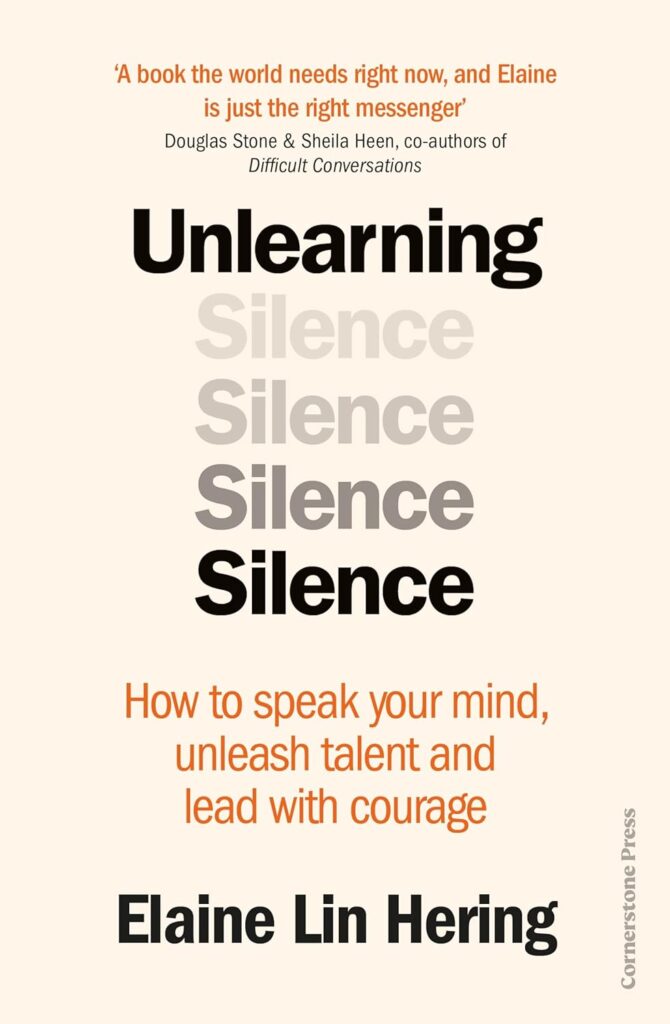We silence ourselves to fit in
Sociological studies have demonstrated in study after study that people who hold more dominant identities have more power in a system. In much of the world, that means White, wealthy, able-bodied, cisgender, males. Those who have more dominant identities inherently have an advantage, get to make the rules, and receive the benefit of the doubt. Their voices are accepted by default because they are the norm. Those who have more subordinated identities start with a disadvantage, have to follow the dominant rules, and, by nature of not having the dominant identity, are seen as deficient, or as the other.
Being a woman in a male dominated industry or workplace means that you often have to edit out parts of yourself in order to be accepted. Whether it’s concealing emotion or hiding the fact that you hold caregiving responsibilities so that you aren’t seen as a liability. Women are disproportionately subjected to microaggressions, being told “yes, dear” or being expected to carry out “work chores” like getting the coffee, or taking notes in meetings.
Having to hide parts of ourselves constantly, keeps your nervous system chronically on high alert. Over time, the levels of resulting stress manifest in skin rashes, digestive challenges, heart issues, migraines, and adrenal and chronic fatigue. Silence can be a common response to trauma and forced silence can be considered secondary trauma. In contrast, being truly heard and seen by people is the most powerful protection against being overwhelmed by stress and trauma, which cannot happen if we remain silent or are silenced
Silence keeps us isolated
Being one of the few or the only in any context increases the likelihood of isolation. Being the first or only person in your family to go to college, or work in corporate America, or venture into a new and different career path can be isolating—especially if those people who were once reliable comfort are unfamiliar with this new way of life, leaving us feeling alone and even more isolated in unfamiliar territory.
Social isolation is comparable to smoking and obesity in terms of shortening one’s life span. Loneliness contributes to lower levels of health, risk of cardiovascular disease, elevated blood pressure, and functional decline. Our social ties— being known by others and not going it alone— provide a buffer against stress and anxiety. Being truly heard and seen by people is the most powerful protection against the impacts of stress and trauma, which cannot happen if we remain silent or are silenced.
Below are three ways to unlearn silence and move toward a healthier self:
- Choose someone who can be what you need
Who do you think can hold space and hear what you have to share? Who is likely to believe you – or at least not question or debate you as you describe your lived experience? Sometimes it’s actually someone who is removed from the situation, so they are less likely to be navigating their own reactions to the situation and more able to be present for you in the moment.
We also each have the opportunity to be that person for someone else. If someone shares, don’t interrogate. Listen to understand and ask how you can best support them.
- Define the scope
Unlearning silence doesn’t mean saying everything to everyone. It is about making sure you have the support you need so you don’t suffer in silence, and that you get to share on your own terms. Communicate what level of confidence you want the person to hold. It could sound like, “I’m not ready for anyone else to know, but I did need someone to know. Can you keep this between you and me for now?” or “You can tell Joelle, but please don’t tell Mom.”
- Give them a role
Most of us want to show up well for each other. Want to be part of a system that support rather than silences each other. We often don’t know what that looks like in the moment. You can increase the likelihood that people show up for you well by telling them what you need. It can sound like “I just need to vent. No advice or platitudes, please. Emojis or GIFS welcome.”
I’ve been shocked at how often sharing one’s story leads someone else to say, “Me too.” Those two words can make challenges visible, which is the first step to making them addressable. Health can begin by saying to someone, “Hey, I’m struggling with . . . ,” or being open to hearing that from someone else.
Staying silent and being silenced negatively impacts our mental, relational, and physical health. Choosing to share about your experience on your terms disrupts social expectations, reduces the strain on our bodies, and increases the social connection we all need to thrive. By being willing and able to hear each other’s experiences, we are able to move toward greater individual and collective health, together.

Excerpted from Unlearning Silence: How to speak your mind, unleash talent and lead with courage, Cornerstone Press (21 Mar. 2024)


